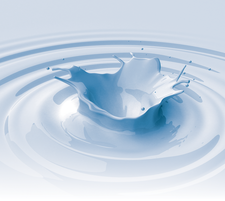Bootsplash Patch Download
Linux patch bootsplash 2. And all your downloads are in /home/username/Downloads. Cd /usr/src/linux patch -p1bootsplash.diff rm.
Are you looking for splash screen vectors or photos? We have 109 free resources for you. Download on Freepik your photos, PSD, icons or vectors of splash screen. I don't know about any of you, but the fact that the original bootsplash patch is becoming obsolete and being superceded by sucky. Sorry, I mean.

Gp4 How To Install Mods With Forge. Welcome to LinuxQuestions.org, a friendly and active Linux Community. You are currently viewing LQ as a guest. By joining our community you will have the ability to post topics, receive our newsletter, use the advanced search, subscribe to threads and access many other special features. Registration is quick, simple and absolutely free.
Note that registered members see fewer ads, and ContentLink is completely disabled once you log in. Are you new to LinuxQuestions.org? Visit the following links: If you have any problems with the registration process or your account login, please. If you need to reset your password,. Having a problem logging in? Please visit to clear all LQ-related cookies.
Introduction to Linux - A Hands on Guide This guide was created as an overview of the Linux Operating System, geared toward new users as an exploration tour and getting started guide, with exercises at the end of each chapter. For more advanced trainees it can be a desktop reference, and a collection of the base knowledge needed to proceed with system and network administration. This book contains many real life examples derived from the author's experience as a Linux system and network administrator, trainer and consultant.
They hope these examples will help you to get a better understanding of the Linux system and that you feel encouraged to try out things on your own. To receive this Complete Guide absolutely free. Boot Splash HOWTO (Update). From [url removed] or [url removed] A couple of days ago I installed the Debian bootsplash package and rebooted. It simply didn't work, so I went to the internet to find out why. The first site I came across was and one of the first things I found, was that you need to patch your kernel.
Bootsplash.org points you to: which has patches for various (including the 2.6.15 2.6.18 2.6.20 and 2.6.21) kernels. I am using the 2.6.22 kernel and the 2.6.21 kernel patch failed, so the first thing I had to do, was patch the patch. So, here is a (md5 = 138bd614f5866b6a358903). At the top of every bootsplash.org page, is the prominent notice: NOTE: The bootsplash project has been superseded by a boot splash implementation that does not require a kernel patch and is a lot easier to configure. We suggest you go and update to Splashy. This page will stay up for convenience reasons but no new patches will be posted.
So, I tried Splashy. And all I can say is, DON'T BOTHER. Who wants a bootsplash that adds an extra 30 seconds to your boot time and has a progress bar that seems to be tracking the progress of a learner driver.
The fact that Splashy does not work well is not totally the fault of its author, it is simply that the whole idea is fatally flawed. In order, to not use a simple kernel patch, the whole frame-buffer machinery has to be crammed into the initial ram disk, then unpacked and fired up at boot, and that all takes extra time.
SuSE will never change from bootsplash, to Splashy. You have to wonder; Why would one want to close down a perfectly acceptable bootsplash arrangement, for one that hardly works and has no hope of working well? Actually, don't wonder. This is just another, albeit subtle, way to sabotage Linux. It is reminiscent of the NTFS (read-write) kernel driver affair, where the kernel driver was abandoned in favor of the NTFS/fuse user-space driver.
Of course, no user-space driver will ever compete favorably with Microsoft's NTFS kernel drivers. But then, that was the whole point, wasn't it? By lying about the dangers of the NTFS kernel driver, certain kernel 'developers' were able to have the driver expelled from the Linux kernel and the NTFS/fuse project crowned as the only way forward. Of course, if the kernel 'developers' had actually been concerned about the dangers of the driver, they would have fixed the offending code, not thrown the code away. Save the kernel and patch somewhere. I chose /usr/src/.